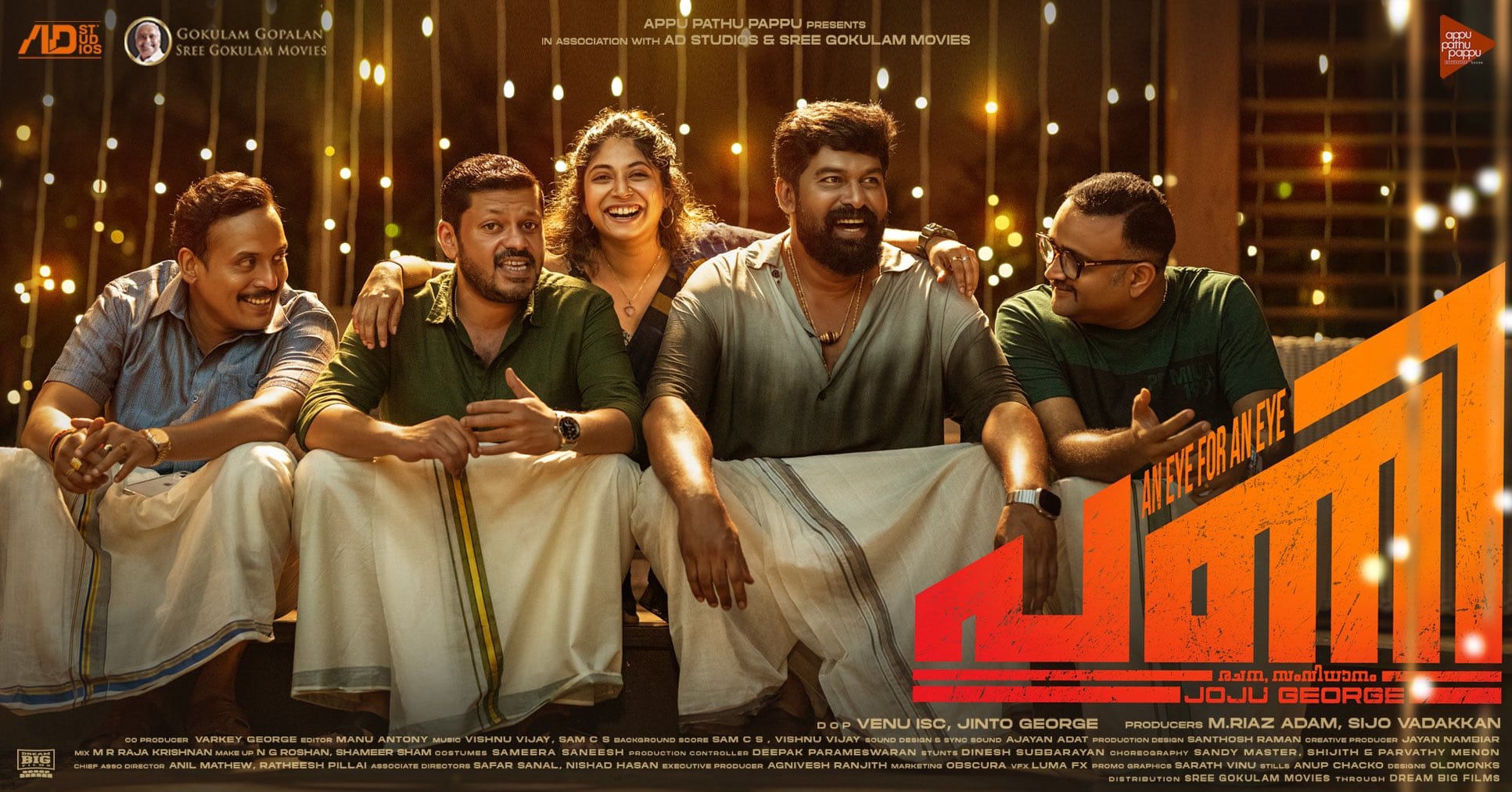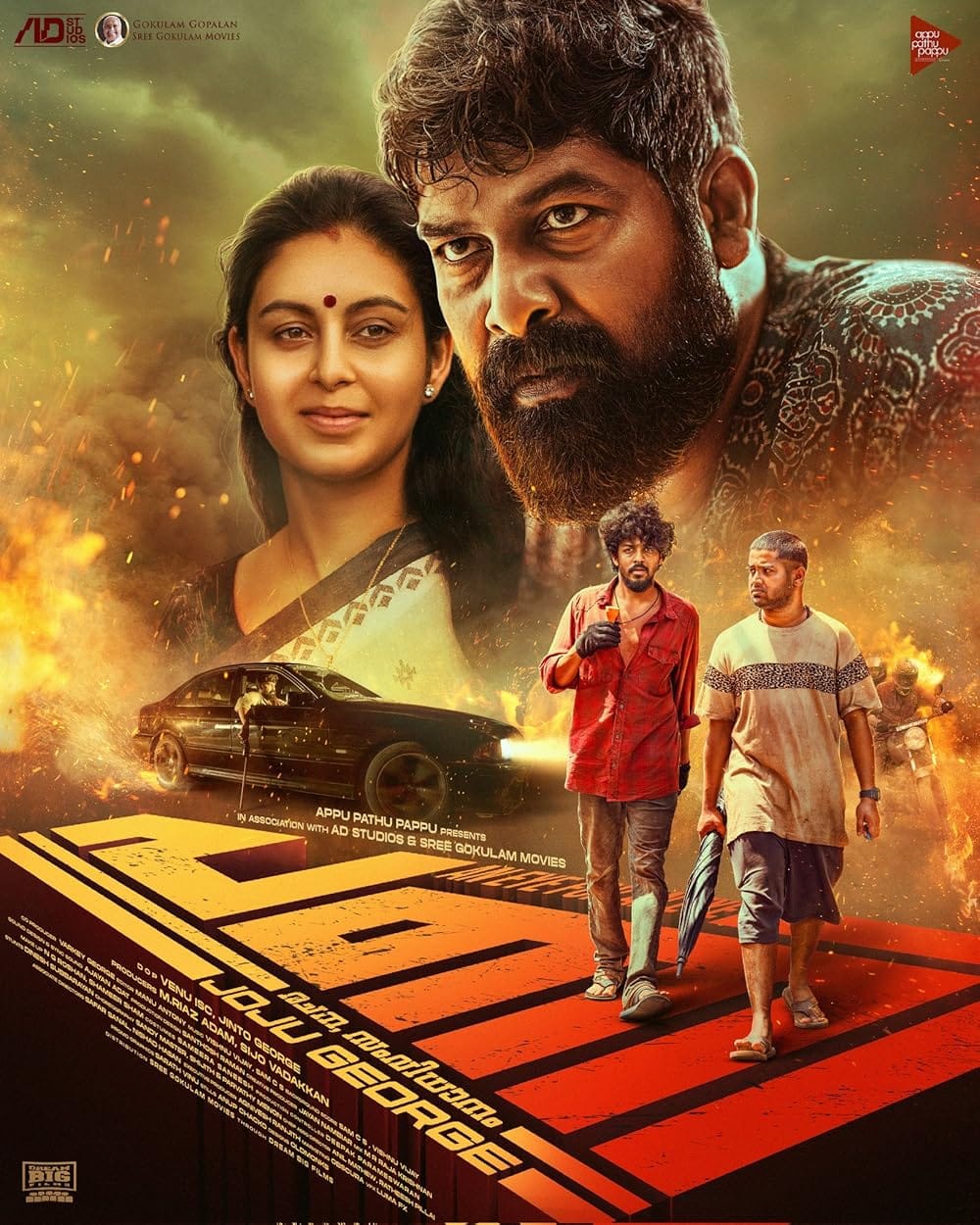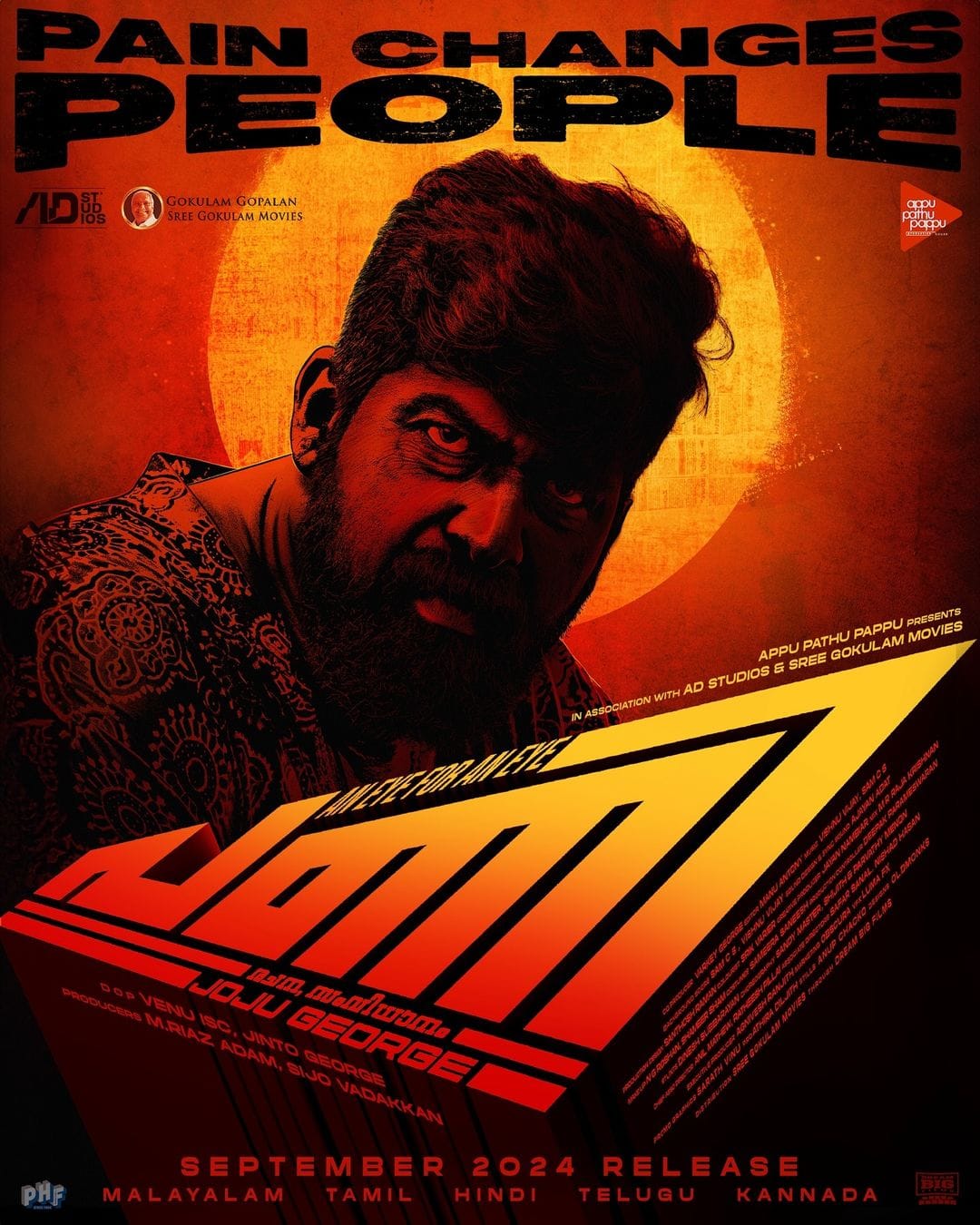The gangster theme is almost absent and rare in Malayalam cinema, especially because of the dark theme associated with it in serious films. Therefore, it becomes a difficult task to make and present it before the Malayali audience who could easily reject such a theme when the cinematic elements are not blended well. When the recent Pani (2024), a proper gangster film released, it faced a similar challenge. Pani was written, directed by Malayalam actor Joju George and produced by AD Studios and Joju’s Appu Pathu Pappu production house.
Pani was written, directed by Malayalam actor Joju George and produced by AD Studios and Joju’s Appu Pathu Pappu production house.
Pani literally means job and as slang it signifies the violent and criminal doings of mafia. Joju is an actor who got introduced in Malayalam films in his later middle ages, yet the naturalised acting and ability in blending created his signature style. Though the directional debut of Joju, Pani has fought boldly to touch the benchmark of similar genres.
Pani is based on the challenges laid before Giri, the head of a powerful mafia group in Thrissur district of Kerala, interfering with their family life and professional image. The U/A certified film circumferences around the above stated theme and focuses more on violence and emotions. It stars a range of actors in and around the industry like Abhinaya (as Gauri), old Malayalam film heroine Seema (as Mangalath Devaki), Prasanth Alexander (as Kuruvila), Sagar Surya (as Don Sebastian), Junaiz (as Siju), Sujith Shankar and Joju (as protagonist Giri).
Pani’s attempt at revoking set cliches
In Pani, the initial image of Giri as a music lover and romantic man is gravely shifted to a headstrong and violent man. Giri and his gangmates including his brother-in law Kuruvila and Davi, are a mixture of family and friends from college days. They are feared and told by others to stay out of trouble, in short, they decide what happens in Thrissur. Their mode of working, inter-linking within groups and easy access of even sensitive information from police, all fall into the cliches already heard and seen by the audience of gangster films.
The bungalow in the city named Mangalath and the strong mother, Mangalath Devaki enacted by the veteran actor Seema, who brought up Giri is shown to explore his background. Nevertheless, this, too, fails to impress the audience. The unity among the mafia members, their involvement in the happenings of the district, Giri’s try-hard portrayal of a good criminal are nothing out of the ordinary gangster film rulebook.
Influence of drugs and violence on the youth in Pani
This was one significant social theme conveyed by the film when today’s news surge with the news of youngsters involved in crimes and drug use. Invariably, this is an irony in itself since the film glorifies violence and vengeance as a tool to regain honour; with the potential to mislead viewers. Pani shows how the youths who are deprived of attention, education and finances are readily attracted to the criminal gangs. They create the impression of high living, pleasure and heroism which otherwise they will have to strive long to acquire. Drugs and other substance also lure youngsters into unwanted companies as in the case of the villains.
Don Sebastian and Siju, the villains are the first instance of such influence and the film includes other instances were teenagers re-name themselves and associate with criminals.
Don Sebastian and Siju, the villains are the first instance of such influence and the film includes other instances were teenagers re-name themselves and associate with criminals. The actors who played villains have done a brilliant job, they give the impression of animalistic instincts where they are no more human, evoking repulsion in the viewers.
Another important point is the involvement of these criminal links in the police force and how they are able to keep track of the events. Most importantly, the graphic scenes involving rape and sex could have been more appropriate and sensitive, evoking gulit in the viewers.
Problematic portrayal of women
In women characterisation and dialogue writing, the script writer has taken efforts to make it appear modern, starting with Giri’s mother Mangalath Devaki, a matriarch who is ready to take up challenges or face reality without hesitation. She realistically handles the situation when Gauri is hurt, and also asserts time for herself by preferring sometimes not to go for family events and so on.
Therefore, she is a symbol of women power in the film. Similar to her is the character Jaya enacted by Abhaya Hiranmayi, a badass woman in the film. She had developed friendship with these men since college days and is strongly involved in the day-to-day activities of their mafia group. She is evidently brought in to show how a woman can be happily married and still continue to enjoy the type of life that she wants.
The other women characters like Gauri and the sister of Giri are assigned the usual roles of a perfect housewife capable of accepting their husbands as they are. Even when all the women in the family understand the men’s wrong deeds, they either take it as a privilege or an incorrigible character trait that can’t be helped.
Pani is also caught up in controversy for its blatant depiction of a rape scene; one of the film reviewers from Kerala questioned it. According to the reviewer, the rape scenes were voyeuristically pleasing for the viewers exacting perverse feelings from them and placing the woman as an object. He faced backlash from the director cum actor Joju George, leading to condemnation of the film from the audience.
According to the reviewer, the rape scenes were voyeuristically pleasing for the viewers exacting perverse feelings from them and placing the woman as an object.
Similarly, the new girlfriend of Don Sebastian is shown as a lustful woman who does not want to know him or love him, just like Don. At times, her character alternates between a lustful and foolish woman from an affluent family. And her sudden transition in the end is something that comes as a surprise.
At a glance, Pani cannot be hailed as a masterpiece or above average as most of the reviews are claiming. But as for the performance of Sagar Surya and Junaiz as the villains, they created much-needed replusion in the audience. This is otherwise an average film that could have been handled with care, especially for the young viewers.
Moreover, the desperation of the filmmaker to specify the location of the film to amplify his native place is undesirable and such an emphasis on provinciality could have been avoided. A lot of wrong conceptualisations, scripting defects and outdated plot have affected Pani to a great extent.
About the author(s)
Vidhu (she/her) is an emerging writer with Masters in English language and literature, keen on learning the politics of the world around her. She has dreams to create a career in journalism and writing, where she unburdens her self. She has a great taste for movies from varies geographical spans and pens down poetry in magical charms. She is open to projects or research centring on humanities.








